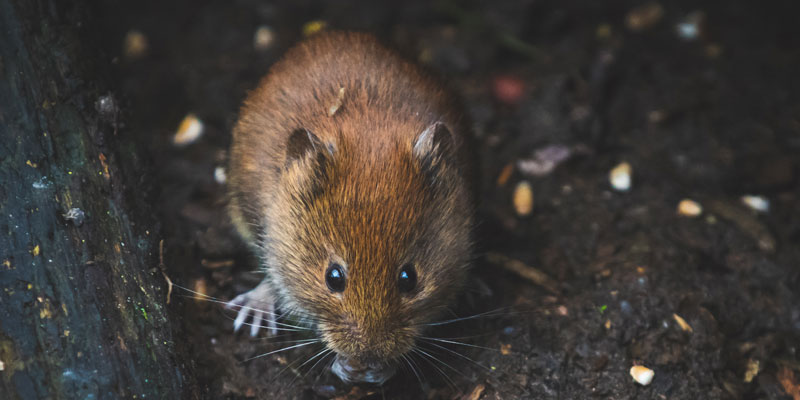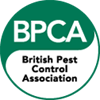
Mice Pest Control Services
Mice Infestation Control Services for Essex & East London
One of the most common pests in the UK, house mice (Mus Musculus) are a variety of rodent that has evolved to live with humans in their properties. Classed as Commensal rodents, from the latin “share one’s table”, wherever humans live, house mice will live alongside.
Once mice invade your home it is important to move quickly to control their numbers before their population explodes. Our team of friendly, professional exterminators understand the need for a fast and effective solution and offer mice pest control services in Essex & East London, including areas in and around Chelmsford, Southend and Basildon.
Once these highly intelligent rodents invade it can be difficult to control their numbers so an effective mouse removal solution is needed before they cause significant problems in the home. Even though mice are active all year round, these common pests are found inside more as the weather turns colder, seeking warmth, shelter and food. Our team of professional mice exterminators are experienced in thoroughly removing these unwanted guests, while causing minimal disruption in your home.
Call now on 0800 955 0003

How do I know if I have a mouse problem?
There are a few signs that point to an infestation of mice, and it can be handy to know what to look out for so you can take action quickly.
- If you hear scratching sounds coming from walls and ceilings, this points to a pest control issue.
- Mice will also leave signs of their entrance routes, such as holes chewed through walls and floors in order to gain entrance into your home.
- You may even see evidence of mice nesting in your home, finding nesting materials such as shredded paper, fabric, or dried plant matter.
- Mice need a food source, so look for signs of chewing on food packaging such as gnaw marks on cardboard packets.
- There will be stale smells coming from hidden areas, and if you have pets such as cats and dogs, you may find them acting unusually as they react to the presence of mice in your home.
- One of the most common sights that confirm pest control for mice is needed is finding droppings – like dark grains of rice around a quarter of an inch long. Most commonly found around food items, in drawers or cupboards, and under the sink.
What causes a mouse problem?
Mice are looking for warmth and food sources – both are easily found inside the average UK home. Mice infestations are more likely during the winter months as they look for shelter when the weather turns colder.
An easy route for entry is attractive to mice, and many modern properties have air bricks a few inches off the ground that have holes just the right size for mice to enter. But any hole into your property that you could fit a Bic pen into, is big enough for an adult mouse to squeeze through.
Mice are competent climbers and can easily climb the walls of a house looking for the tiniest holes to gain entry.
Although they are attracted by food particles not being cleaned away, even the cleanest of homes can attract mice as they only need a crumb left underneath a kitchen unit to provide them with a meal. Unlike rats, mice are don’t need a water source as they get all the moisture they need from their food.
If your home has lots of clutter it can provide an easy nesting site for mice. A garden with rotting vegetation is especially appealing as mice will nest under the leaves close to an easy food source such as easy access to pet food or bird food left out in the open.
Household waste is full of leftover food for mice to feast on – if rubbish is not cleared away or secured in bin stores and wheelie bins then this will attract mice.
Bowls of cat or dog food being left out overnight in the kitchen are firm favourite for house mice. This will provide them nutritious meals to enjoy in the dead of the night.
Where can mice be found in the home?
The first place that our Pest ID rodent control experts would inspect is the loft. A relatively warm, quiet, safe and dry area, it has the perfect conditions for mice. The mice will then head through the wall cavities towards the kitchen, where they go under worktops to feed off of the tiniest morsels of food left around the kitchen.
But mice are not fussy house guests, and will reside in any space in your home or garden that offers them food, warmth and nesting materials. This can be anywhere from wall cavities, lofts, garages, sheds, under floorboards, under kitchen cupboards and even inside furniture.
What issues can a mouse control issue cause?
As mice are rodents their incisors (front teeth) never stop growing and they have to constantly gnaw to wear them down. If they don’t their teeth can become so deformed they cannot feed properly and will die, so this means they will gnaw at anything in their surroundings. Not only can they cause damage to possessions (like books and clothing) furniture, appliances, housing structure & insulation materials (cables, woodwork, cardboard and plastic), but gnawing from electrical wires is a major cause of house fires.
Although a single mouse only eats a tiny quantity of food, a single mouse never remains that for long – if conditions are right 2 mice can become 1,000 mice within a year. One female mouse, with litters of between 5 and 12 per pregnancy, can give birth to up to 60 pups in a year. Females are sexually mature within 6 weeks, can fall pregnant immediately after giving birth, and will give birth again within 19 to 21 days. Such a huge volume of rodents will consume a huge quantity of food and cause a lot of destruction.
Mice are known carriers of pathogens – as they are often found in dirty areas, they will carry the bacteria from these places, along with fleas and other parasites, into your home causing a threat to both humans and pets. They also contaminate food with their urine, faeces, and hair.
Can I get rid of a mouse problem myself?
You may be tempted to treat a mouse problem yourself, thinking that you only have a very slight infestation – but there is very rarely just one mouse. With their fast and efficient breeding cycle, one mouse can become many in just a few weeks. Shop bought rodenticide may not be strong enough or in sufficient enough quantity to kill the entire colony, and any that survive can become partially resistant to rodenticides. If these mice breed it can create offspring that are partially resistant too, leaving you with a much bigger problem than you started with.
And while it may feel easy for you to place rodenticide in your property, a DIY approach can lead to bait shyness, where other colony members can associate sickness or death with a food source – and then avoid it at all costs.
Humane trapping is often thought of as a good alternative to other methods, but this approach is full of problems. The humane traps need to be checked by law every 8 hours, and if a mouse is caught inside you need to either quickly dispatch it by killing it yourself, or release it back into the wild where it will either perish from exposure or starvation (as house mice have evolved to live inside), or re-enter your (or another persons) property.
The professionals from Pest ID are trained to use measures such as spring traps – these require great care when setting up so they work correctly and incorrect use can leave the mice ‘trap shy’ if they associate injury or death with them, which leads to the learned behaviour of trap avoidance.
Why choose Pest ID for mouse control?
Once commissioned, the team at Pest ID will survey your property to find out why and how mice are coming in. We will be thinking of what will need to be done to prevent further ingress while we start treatment straight away, using what is the quickest and most efficient treatment to kill off the infestation while keeping you, your family, children, pets and non-target species as safe as possible. Any bait will be in a tamper proof, lockable bait station.
We will conduct a follow up visit, usually within 2 weeks, to ensure that the infestation has been taken care of. If you have noticed any signs of activity since our first visit, please let the technician know. We also include basic rodent proofing where feasible.
We are full BPCA members and we are also CEPA Certified, allowing you the peace of mind to know that your pest control problem is in safe and trusted hands. Pest ID are small enough to care, but large enough to matter – and we pride ourselves on our client satisfaction, with high numbers of client referral and repeat business.
Do Pest ID offer mouse control in commercial properties?
We offer our pest control services for mice in both residential and domestic properties. We would recommend commercial or large domestic properties to consider ongoing preventative pest control cover, and we offer diarised routine visits that will happen throughout the year to prevent further infestations.
We understand the sensitive nature of having a mice pest control problem, and we can park away from your property if required. Whilst being known as Pest ID, our technicians uniforms have “ID Group logos”, so can offer you the utmost of discretion.
What can I do to stop my mouse problem recurring?
To keep mice out of your property, the first step is to block off their access routes, sealing cracks and holes on the outside, including areas where pipes enter the home. Fit wire mesh over air bricks, and keep plants and bushes trimmed and cut back away from your house so mice are not hiding close to your property.
Remember, if you can fit a Bic pen through any hole in your property, a fully grown adult mouse will also be able to fit through.
Removing food sources is another good deterrent – so take measures such as storing food in airtight containers, disposing of rubbish regularly and properly, and keeping bin stores tidy.
By keeping sheds, garages and lofts well ventilated and dry, and free from rubbish and clutter, you can make these spaces less attractive to mice looking for a home. You can also try to repel mice using cotton wool balls soaked in peppermint and clove essential oils – leave these in any areas that are frequently attracting mice.
Although mice feel fear if they smell pheromones from cat urine, cats are not always the best deterrent as they have been known to bring live mice into houses where the mice may escape within the house!
EXCELLENTTrustindex verifies that the original source of the review is Google. Pest ID attended at short notice to treat a pest problem. Steve K was courteous and professional. I would recommend Pest ID.Posted onTrustindex verifies that the original source of the review is Google. Would 100% recommend this firm, had my solar panels bird proofed by Ian, lovely gentleman, excellent job done. On time, very helpful, down to earth and very reasonable prices!Posted onTrustindex verifies that the original source of the review is Google. Ian was very knowledgeable in carrying Pigeon Proofing My Solar Panels & very understanding when he had to make 3 site visits to ensure remaining Baby Pigeons had gone, I would have no hesitation in recommending Pest ID. With Thanks for a Job Well DonePosted onTrustindex verifies that the original source of the review is Google. Would highly recommend this company, Ian was courteous, polite and explained every aspect of the job to pigeon proofing our solar panels, he even fixed a loose roof tile he noticed. Great service!Posted onTrustindex verifies that the original source of the review is Google. We have a portfolio of property across London and have used Pest ID for a number of years to tackle rats, mice, wasps, ants, etc. They are very professional, responsive, helpful, and always get the job done. We would thoroughly recommend them to anyone needing Pest treatment.Posted onTrustindex verifies that the original source of the review is Google. I contacted Pest ID re possible bedbugs (unfounded as it turned out!) and spoke with Ian (technician) and Jo (office manager), both of whom were very calming and patient. They very clearly explained their procedures with a follow up email and expertly answered my questions. I felt greatly relieved and knew I was in safe hands. Terry came the next day and, after investigating, provided the reassurance I needed to confirm no bedbugs! He was very knowledgeable and kind, offering advice and made me feel very comfortable. I would have no hesitation whatsoever in recommending this exceptional company with such professional, caring and compassionate people.Posted onTrustindex verifies that the original source of the review is Google. A fantastic service. 5 stars just aren't enough. Spoke to the lovely Jo A, and I was just blown away by the customer service. Best way to describe this company is honest trustworthy and actually putting the customer first. They worked to not only solve my issue, but using the best method for me, they didn't push the most expensive service but also didn't just offer a cheap option that wouldn't work. Jo took the time to explain everything. She's a real credit to the team. I really cannot recommend Pest ID enough. If youre looking for an honest tradepersons who give a superior service stop searching. Thanks Jo!Posted onTrustindex verifies that the original source of the review is Google. Problem with pigeons roosting, called PestId, came before 9am next morning and quickly expertly and professionally within an hour. First class service. Use no othersPosted onTrustindex verifies that the original source of the review is Google. The technician attended on time, and was polite and very thorough. He also kindly moved the furniture back for me without being asked! Definitely comes recommended :)Posted onTrustindex verifies that the original source of the review is Google. Friendly, fast and efficient serviceVerified by TrustindexTrustindex verified badge is the Universal Symbol of Trust. Only the greatest companies can get the verified badge who has a review score above 4.5, based on customer reviews over the past 12 months. Read more








